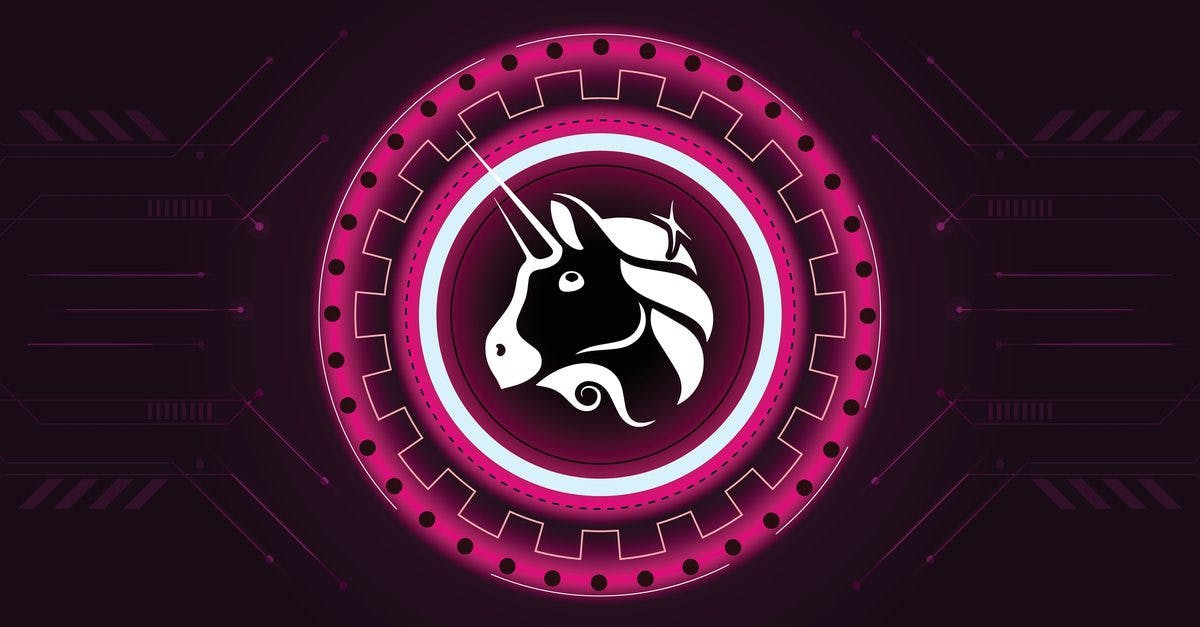Report: SEC Investigating DeFi Exchange Developer Uniswap Labs
Under scrutiny is how the exchange is marketed, according to an unnamed source cited in the Wall Street Journal.

Source: Shutterstock
- Uniswap told the Wall Street Journal that it is committed to complying with laws and regulations and providing information to regulators to assist with “any inquiry”
- Just last month SEC chairman Gary Gensler said he was prioritizing a crackdown on cryptocurrency platforms with a focus on crypto trading, lending and DeFi platforms
According to a report from the Wall Street Journal, the Securities and Exchange Commission is investigating Uniswap Labs, the startup developer behind the world’s largest decentralized exchange, Uniswap.
The SEC is investigating how Uniswap Labs markets itself, according to an unnamed source cited in the report.
Uniswap Labs told the Wall Street Journal that it is committed to complying with laws and regulations and providing information to regulators to assist with “any inquiry.”
“The SEC does not comment on the existence or nonexistence of a possible investigation,” a spokesperson for the agency told Blockworks.
Asaf Meir, CEO at crypto risk monitoring firm Solidus Labs, said that while crypto and DeFi markets are changing the way trading works, they are also creating new risks and new ways to manipulate trading and harm investors.
“The SEC’s foremost concern is investor protection, and the integrity of markets operated in the US,” he told Blockworks. “It’s likely looking to get a better insight into activity in DeFi markets to assess what actions are needed, guide future regulation efforts and take action to protect investors.”
Unlike three or four years ago, there’s a general acceptance in the crypto space that compliance and regulation is necessary for the industry to fulfil its potential, the CEO added.
“This reported investigation is a strong message that for DeFi markets as well, enforcement is imminent, and it won’t be an ‘ask for forgiveness rather than permission’ scenario,” Meir explained. “If you want to grow as a DeFi service provider, you have to take risk monitoring and compliance seriously right now, rather than in a year.”
SEC makes good on DeFi crackdown promises
Just last month SEC chairman Gary Gensler said he was prioritizing a crackdown on cryptocurrency platforms with a focus on crypto trading, lending and DeFi platforms.
“Generally, folks buying these tokens are anticipating profits, and there’s a small group of entrepreneurs and technologists standing up and nurturing the projects,” Gensler said in August. “I believe we have a crypto market now where many tokens may be unregistered securities, without required disclosures or market oversight. This leaves prices open to manipulation.”
“There’s dozens of platforms that say, ‘come here, lend us your crypto,’” Gensler said then. “You can go online right now and find some that are touting 4% returns, 7% returns, 9% returns. …Who is looking after the investors as to those — are they good-faith actors that are really there, are they Ponzi schemes or are they somewhere in the middle?”
According to Gensler, “right now, large parts of the field of crypto are … not operating within regulatory frameworks that protect investors and consumers, guard against illicit activity, ensure for financial stability, and yes, protect national security,” he said. “…If this innovation has any chance of surviving into the late 2020s and 2030s, it can’t stay astride the public policy.”
What is a decentralized exchange?
A decentralized exchange, or DEX, is a peer-to-peer exchange for digital assets where users can transact without an intermediary.
Exchange rules are governed by smart contracts, and the transactions occur automatically with parties agreeing to send a small percentage of the value of the exchange to a liquidity pool which facilitates the trade.
With a DEX, there is no centralized custody or engine driving order placement. While there are developers that provide updates and quality assurance to the underlying code, there’s minimal corporate and regulatory structure or capital intensive operations. Instead, DEXs are governed by users who have a democratic influence thanks to governance tokens which let them decide the direction the platform takes, Blockworks previously reported.
The Wall Street Journal reported that the SEC investigation is in its early stages and may not find any wrongdoing.
This story was updated with contributions from Ben Strack on September 3, 2021, at 11:32 am ET.






